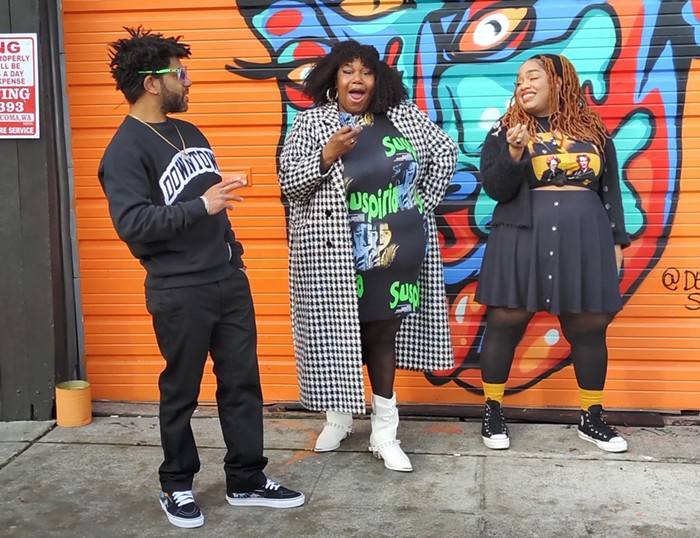
Washington's pot businesses are digging in for a fight against the state's decision to ban infused candies. A coalition of trade groups announced their opposition yesterday, calling on the state's Liquor and Cannabis Board (LCB) to "immediately rescind" the ban.
"Given our history of cooperation and collaboration with the LCB, we were surprised and disappointed by the LCB’s abrupt, unilateral decision to ban previously LCB-approved cannabis-infused sweetened products," the public statement said.
Three groups signed the statement: the Washington CannaBusiness Association (WACA), the Cannabis Alliance, and the Cannabis Organization of Retail Establishments. WACA's membership includes the largest pot businesses in the state - the farms that are able to sell millions of dollars of pot every month - while the Cannabis Alliance includes hundreds of smaller farms and processors. Tuesday's statement represents a somewhat rare occurrence of the two groups working together. Their statement called the opposition a "first-of-its-kind joint statement."
In addition to the public statement, the three groups wrote a direct letter to the LCB calling the recent ban on candy products, which the LCB has previously approved, "arbitrary and sudden."
"No regulated industry can survive when regulatory activity is unpredictable. Additionally, the manner in which the LCB handled this issue creates an impression of noncompliance that is utterly unwarranted and untrue," according to the letter shared with The Stranger by a spokesperson for WACA.
Brian Smith, a spokesperson for the LCB, confirmed that the agency received the letter. The LCB's board won't have a chance to respond to the industry this week, as both regularly scheduled board meetings were cancelled. Smith said the cancellations were because of a lack of quorum of board members and had "nothing to do with the infused candies announcement."
The LCB announced last week that starting in January they would not authorize any infused candies, which they defined as hard candy, tarts, fruit chews, colorful chocolates, jellies, and gummies. State law has always banned edibles that are "especially appealing to children," but up until last week the LCB didn't interpret all candies as fitting into that definition. Now they are, telling processors to stop producing these previously approved edibles and giving retailers until April of next year to stop selling them.
Smith said last week that the review and new decision was triggered after complaints from "the public and stakeholders" were filed against specific products. I asked Smith if he agreed that the LCB's decision was as "abrupt" as the coalition groups described. He said the agency was working quickly so they could update their process before the regularly scheduled annual review of edibles took place for 2019.
"The timing on this is connected to the label approval process outlined at the Board meeting and the message to licensees. Between the complaints received and the Jan. 1, 2019 deadline for label approval, notifying licensees quickly was important," Smith said in an e-mail.
Smith said the LCB is listening to the industry associations but also gathers input "from a variety of stakeholders."
"The industry is an important one, but not the only one. We also listen to concerned citizens, the prevention and public health communities, legislators, the Governor’s office and others," Smith said in an e-mail. "We have a responsibility to prevent youth access. This is a responsible step forward."
Ian Eisenberg, the owner of the Uncle Ike's chain of retail pot shops, said he thought the LCB was just trying to cover their tracks after they approved some edibles they wish they hadn't.
"I have yet to see any data showing there is even a problem that needs solving," Eisenberg said. "I think the LCB screwed up by approving some edibles that totally look like kids candy. Instead of firing whoever approved them, the LCB is punishing the whole industry."
The coalition groups pointed to a 2017 report from the state's think tank that showed that youth use did not appear to increase following legalization. The group's also said that the cannabis industry has a higher rate of regulatory compliance than the liquor or tobacco industries.
The LCB's ban does not currently include other foods like cookies, caramels, or mints. Why does the state think a hard candy is dangerously attractive to kids but a cookie isn't? We'll find out more next week, when the LCB plans to host an online presentation further clarifying their candy ban.
















